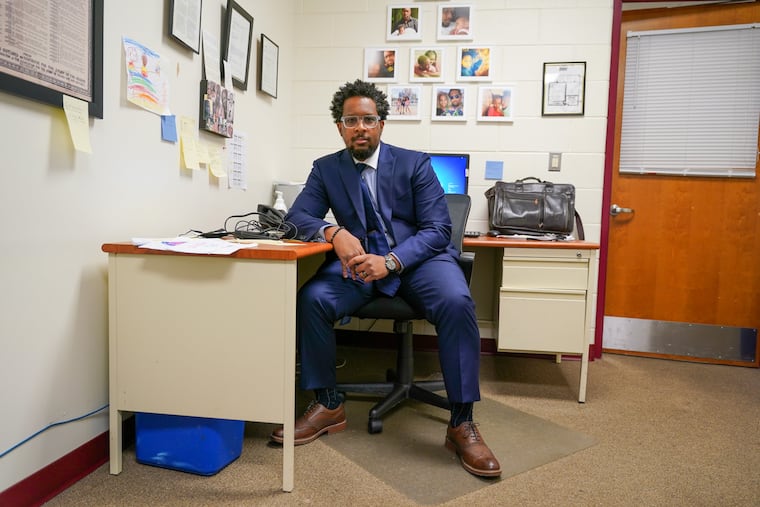Don’t teach about MLK from a whitewashed playbook | Opinion
Teach the truth — even if it’s unpopular.

This month, the nation remembers the life, message, and contribution of the Rev. Dr. Martin Luther King Jr. Next month is Black History Month, where children nationwide learn about the history and contributions of Black people both in the United States and worldwide.
But because of school board election wins and legislation that prohibits the teaching of race, racism, and white supremacy throughout the country, including Pennsylvania, teachers find themselves in a quandary they didn’t ask for.
How will we teach about Dr. King, the civil rights movement, and the rich history of Black people in the U.S. as well as throughout the diaspora, when presenting the truth is frowned upon in some places and illegal in others?
“How will we teach about Dr. King ... when presenting the truth is frowned upon in some places and illegal in others?”
Certainly, teachers will be expected — and, in some cases, instructed — to teach from the playbook that whitewashes American history and the circumstances that compelled heroes such as Nat Turner, Harriet Tubman, Ida B. Wells-Barnett, and Robert F. Williams to act. Children may be taught the words of Dr. King to champion colorblindness, but not the current-day circumstances that render America unwilling to confront matters of race with concrete policy like voting rights legislation, which liberals likely can’t deliver on.
I suspect Dr. King’s words on white Northern liberals — about their “polite” racism of speaking out against the South but turning a blind eye to racist goings-on in their own cities — won’t appear in America’s classrooms, either. But I digress.
No teacher should teach from a whitewashed playbook. But what should we do instead?
I encourage all teachers to teach the truth.
Teach the truth when it’s popular to do so, like during the aftermath of George Floyd’s murder. Teach it when it’s not popular, like during moments of white anxiety following the political mobilization of Black, Indigenous, and Latino peoples, fomented by the former president.
» READ MORE: ‘Will I get fired for this?’ Rejecting white supremacy has a high cost in education | Opinion
Utilize primary source documents where folks like Kwame Ture, Rosa Parks, and Shirley Chisholm can give testimony of themselves so that leaders like Dr. King and Nelson Mandela can’t be whitewashed by textbook publishers and policymakers.
Use examples of racial injustice found in communities all over our nation and the world. Analyze the tactics of groups like the Student Nonviolent Coordinating Committee, the Organization of Afro-American Unity, and the Black Panther Party for Self-Defense to determine the best ways to inspire change and make the world better.
Examine the cultural expression of Black people, influenced by the Black experience and shaped by an anti-Black society — a cultural expression that is often economically exploited and appropriated for the profit of corporations owned and operated largely by white people.
Correct and rebuke those who deny the horrors of enslavement, who deny the existence of the FBI’s Counter Intelligence Program (Cointelpro) that discredited and neutralized leaders and groups within the African American community fighting for civil rights, or who deny the criminalization of Black students resulting in their disproportionate suspensions, expulsions, and arrests.
Sadly, more than ever, people are looking to social media accounts and infotainment on talk radio, cable TV, or YouTube to justify the myth of white supremacy in order to maintain white privilege and power. So teachers must keep their wits about them. They must be prepared to endure the opposition they will face when teaching about the impact of racism.
But teaching the truth is part of answering the call of educating our future leaders.
Doing these things may very well cost you your job. It has cost other educators their jobs, simply for teaching truth and advocating for Black people in the classroom. But we cannot ask students to take risks if we refuse to do so.
Whatever goodwill teachers were gifted during the quarantine seems to be long gone. However, teachers must continue to fight the good fight. Educating is a political act, whether one teaches truth or not. So teach the truth. Keep the faith and know that all opposition to teaching truth is a reminder of its power to set people free.
Rann Miller is an educator and freelance writer based in South Jersey. His Urban Education Mixtape blog supports urban educators and parents of children attending urban schools. urbanedmixtape.com @UrbanEdD